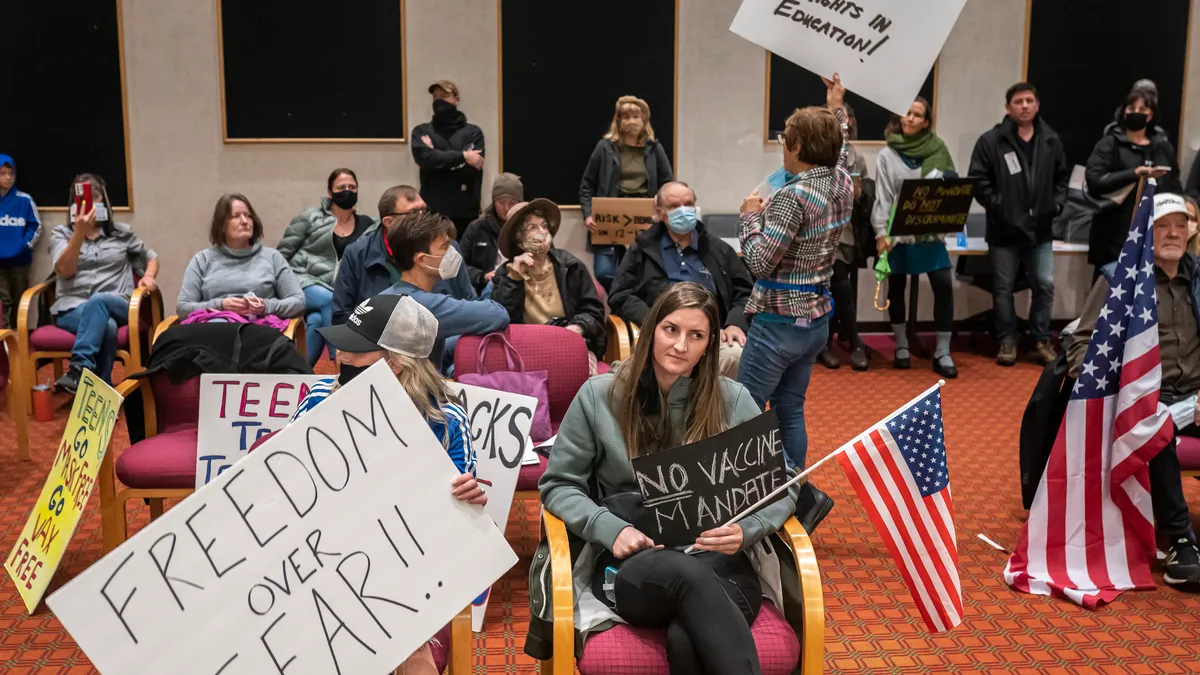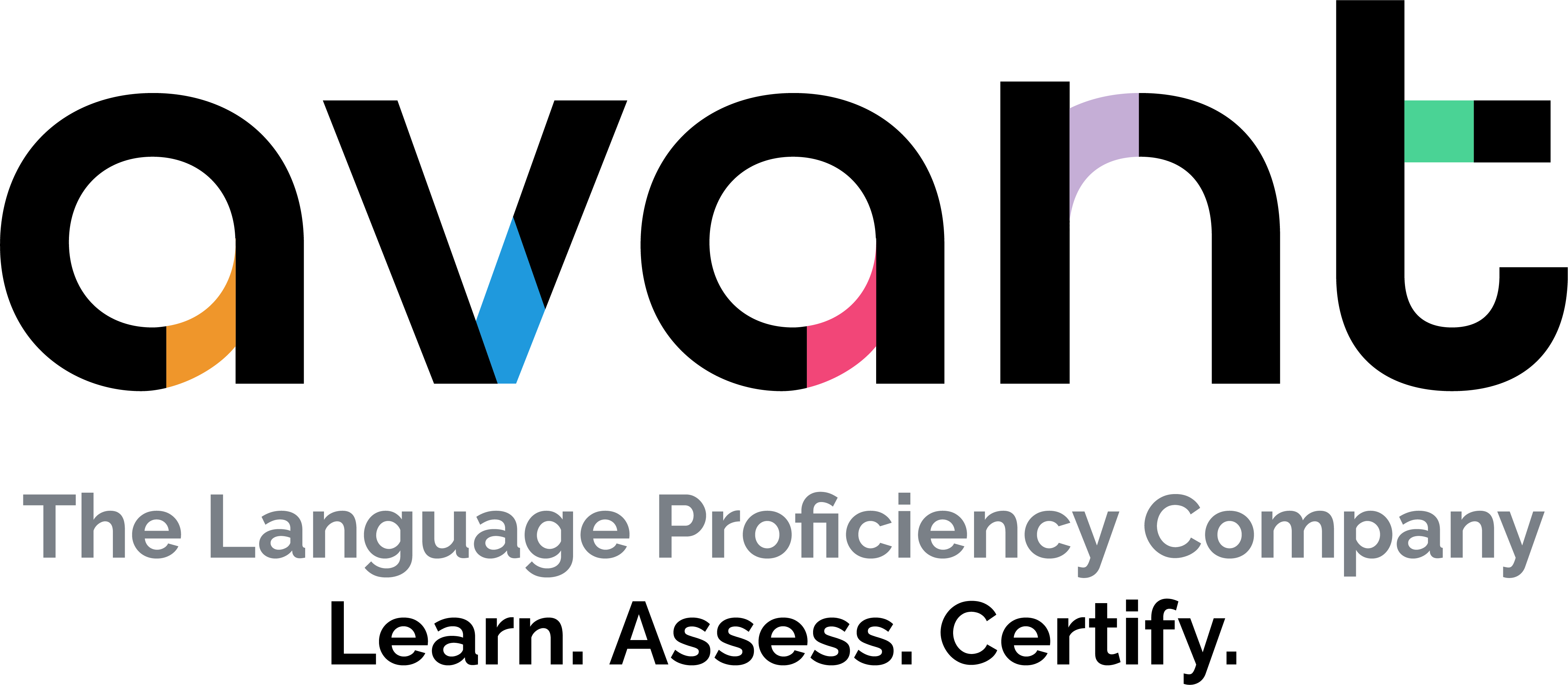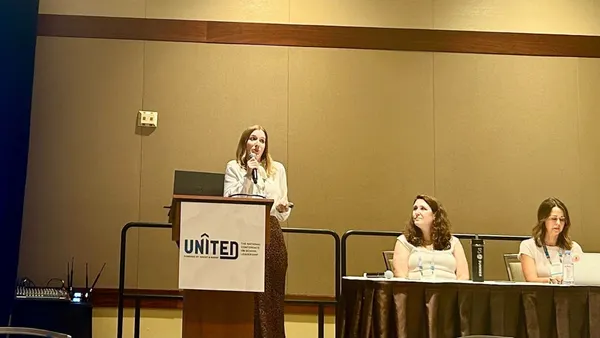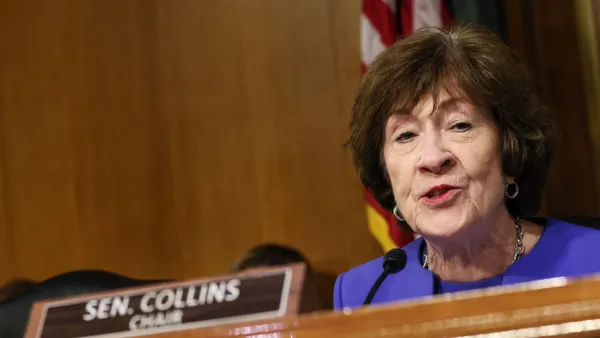Dive Brief:
-
Voters are more dissatisfied with their local school boards than their local schools, according to a national survey released this week by the Pacific Research Institute, a conservative think-tank.
-
While nearly half of voters (45%) gave their local schools an excellent or good rating, a lower share (36%) approved of their local school boards. Nearly half (49%) said their local board was fair, poor or very poor, and a slightly lower percentage (47%) said the same for local public schools.
-
Those who rated their school board's performance as poor or very poor cited four top reasons: They are focused on the wrong goals, don't listen enough to people they should listen to, are trying to promote their own ideological or personal agenda, and allow the wrong people or groups to influence their decisions.
Dive Insight:
Amid culture wars over school-related issues ranging from mask mandates to curriculum regulations, school board meetings are often a place for parents to air grievances about and weigh in on controversial topics. However, in recent years, the meetings have become more contentious and have even led to parent and teacher arrests.
Board meetings' increasingly combative nature was noted in a September 2021 letter from the National School Boards Association — cosigned by former NSBA interim Executive Director and CEO Chip Slaven and former President Viola Garcia — to President Joe Biden. The letter described aggressive parent protests during school board meetings, over COVID-19 safety measures and curriculum controversies, as "equivalent to a form of domestic terrorism and hate crimes" and asked the administration to look into threats against school boards.
However, the controversial letter triggered 19 mostly Republican-led states to leave the organization and eventually led to an apology from the NSBA for its strong language.
Acknowledging the controversy, then-NSBA executive director John Heim said in February 2022 that he had "never seen anything like the last two years" in terms of parent pushback.
Nonetheless, 43% of PRI survey respondents said parents still have too little influence on their school boards. Respondents pointed to the federal and state governments as wielding the most influence over boards.
"In other words, parents, who have the biggest stake in school board decision-making, are seen as the least influential group when it comes to impacting board decisions," according to PRI's analysis.
Nearly 1 in 4 Democrats and Republicans said school boards should focus on student performance, according to PRI.
"Improving student achievement, therefore, is not a partisan issue," PRI said.
The national survey, conducted by Echelon Insights in June 2023, sampled 1,020 voters nationwide who are likely to participate in the 2024 elections.















